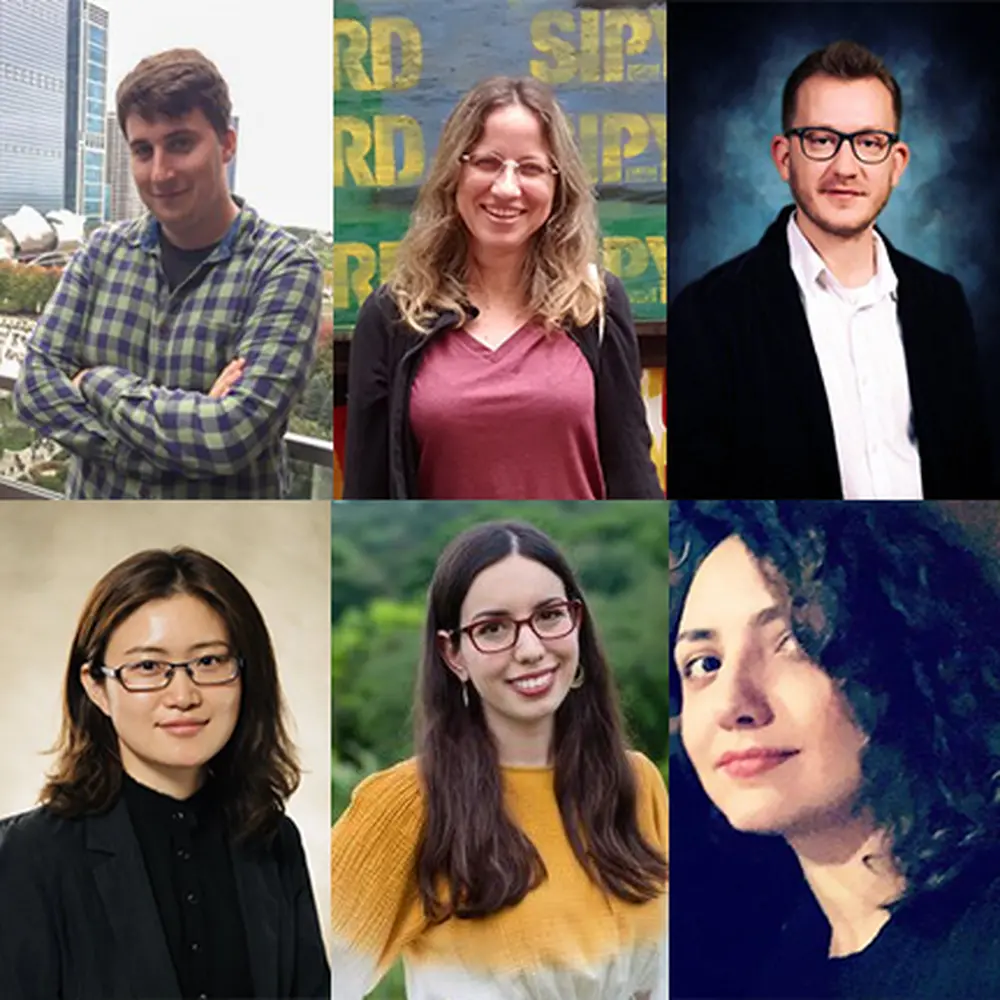
On October 29th and 30th, SLCL hosted its first symposium as a school, “How Does Culture Move? Mobility and Stasis in Global Cultural History,” co-sponsored by the Humanities Research Institute. The symposium took place in a hybrid format with in-person sessions held at the Levis Faculty Center, which were also simultaneously streamed via Zoom.
Take a look at the program here and check out the great diversity of areas/disciplines represented: Linguistics, cultural history, environmental studies, sociology, medieval and early modern European literatures, anthropology, medical humanities, migration studies, and communication studies, among others.
From its inception, the SLCL administration wanted to make sure that graduate students were included in this project, showcasing their research along with that of well-established scholars: the present and the future of our disciplines is therefore well represented. Not only were graduate students among the presenters at this symposium, but they were involved in planning the symposium from the very beginning.
Among the graduate students involved in the planning process were Arkaitz Ibarretxe Diego (SpanPort), Eva Kuras (CWL, Medieval Studies), Nicolas Portugal (FRIT), Yujie Pu (EALC), Lucía Sánchez (SpanPort), and Taraneh Sanei (Linguistics).
Eva Kuras was excited to participate in the symposium because it was directly relevant to her dissertation.
“Cultural mobility is central to my topic: the cross-cultural connections of the “Mediterranean” medieval romance (from western Europe to the far eastern reaches of the Islamic empire),” she said. “In fact, with my fellow Comparative Literature graduate student JiHyea Hwang, we established an IPRH research cluster in 2018-19 called “Transmission, Translation and Directionality in Cultural Exchange.”
“In many ways, this symposium felt like a continuation of the discussions we had there. It was wonderful to hear talks from faculty and graduate students from such diverse disciplines, who utilize a range of theoretical tools to help us see how culture moves along diverse media, and the complex sociopolitical ramifications of this movement.”
Originally planned for 2020, the symposium had to be reconceived multiple times due to the pandemic.
“Organizing a symposium during the pandemic was challenging; the issue of the ‘when’ and ‘how’ has been one that had to be revisited several times due to the changing nature of the pandemic,” said Arkaitz Ibarretxe Diego, leader of the panel Affective Dynamics in Cultural Encounters and Conflicts. He continued, “I am happy that the symposium had an in-person component. This event definitely helped me grow as an academic, because it required interdisciplinary collaboration and it gave me invaluable experience for a future scholarly career.” He added that he was particularly excited for the discussion of new media, such as memes.
One of the graduate student panelists, Nicolas Portugal, had this to say about how the symposium relates to his work:
“My research examines the idea of a “French 9/11” after the terrorist attacks that targeted Paris, France in 2015 through literature and identity politics. Because the symposium engages critical reflections on mobility and status and the global-local, my topic relates to the notion of culture moving and circulating through time and space with the help of new technologies, such as social media,” Portugal said.
“I was excited to present my research and ideas to the audience and looked forward to hearing their questions or suggestions to improve my reflection. Indeed, participating in the symposium helped me reconsider some parts of my dissertation chapters.”
Collaboration with other scholars was also something that excited Yujie Pu, who presented her research on the history of madness and psychiatry in China during the panel, Who Moves in the Past? Culture Contact, Knowledge Production, and Heritage.
“I was eager to know how scholars outside of my research field reflect on this theme,” Pu said. She also added that all of the professors on the organizing committee were supportive and encouraging of the graduate students as they worked together to plan the symposium. Pu said that she hopes to “deliver the warm respect and support that I received for my future students.
Each year, SLCL awards the Dissertation Completion Fellowship to several advanced doctoral students with an academic year of support to complete their dissertations. Three of the 2021-2022 fellowship recipients—Nicolas Portugal, Eva Kuras, and Taraneh Sanei—presented their research during the symposium.
One of the symposium’s speakers, Taraneh Sanei, came to UIUC from Iran for her PhD in Linguistics.
“The theme of the SLCL symposium, delving into the issues of mobility in an era of globalization, closely aligns with my research interests regarding the complex identity work performed in digital spaces, specifically social media, and the utility of a chronotopic approach for investigating such work,” Sanei said.
“I am currently on the SLCL Dissertation Completion Fellowship which has allowed me to focus all my time and energy on my dissertation titled Navigating (Trans-)Locality/Nationality on Social Media: Online Sociolinguistic Practices among Iranians, a chapter of which I presented in my talk at the symposium.”
Lucía Sánchez, a PhD candidate in Spanish Literatures and Cultures, shared her talents to help with the behind-the-scenes logistics of the symposium.
“After a year and a half of online conferences and presentations, I was very excited to attend a hybrid symposium. It is amazing to finally be able to have in-person events, but I also think both attendees and speakers appreciated the flexibility and convenience of being able to join us through Zoom,” Sánchez said.
“I felt it was a valuable opportunity for my professional and academic development, and I look forward to hopefully being involved with future events.”
For a list of the symposium's panel leaders, planning committee, and co-sponsors, please click here.